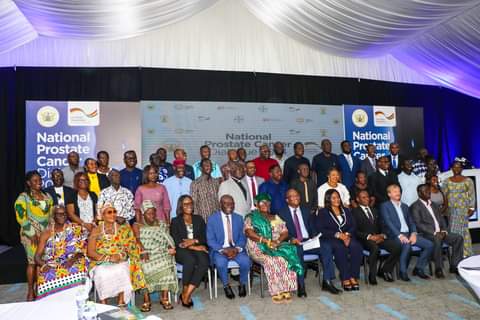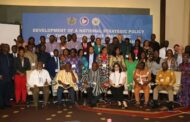To mobilize efforts towards addressing prostate cancer challenges in Ghana, the Ministry of Health together with Bayer Pharmaceuticals and the German Development Cooperation (GiZ) has convened a national prostate cancer dialogue under the theme “Bridging the Gap in Prostate Cancer Care”.
In 2022, 1,467,854 new prostate cancer cases were recorded globally, making prostate cancer the 4th most common cancer worldwide. In Ghana, it is one of the top two reported cancers affecting men, particularly those aged 40 years and above.
Addressing participants at the event, Hon. Adelaide Ntim, a deputy minister for health, stressed on the need to intensify education efforts on prostate cancer to dispel myths and misconceptions and provide accurate information about risk factors, symptoms and the importance of early screening.
She commended the partners for initiating the “piloting prostate cancer intervention” project in Accra, stressing that the initiative is designed to raise awareness, promote early detection, and develop strategic policy recommendations to improve prostate cancer care in Ghana.
Dr. Patrick Kuma Aboagye, Director General of the Ghana Health Service in his address, mentioned that the NHIS benefit package has been expanded to include wellness services, childhood cancers and prostate cancer.
“This is in addition to the introduction of the yearly adult screening program, by the NHIA, providing opportunities for adults in Ghana to be screened in their birth months,” he added.
Wilhelm Hugo, Cluster Coordinator for Sustainable Economic Development, in his remarks, revealed that eight(8) health facilities have been equipped with Prostate-Specific Antigen (PSA) testing devices, and lab technicians have been trained to ensure accurate testing.
The technical advisor for the Health Minister Dr Dirus Osei emphasised that tackling prostate cancer is essential for achieving the objectives of the Non-Communicable Diseases NCD strategy and contributing to Ghana’s broader goal of attaining Universal Health Coverage (UHC) by 2030.
“By addressing the risk factors and improving public health awareness, we can significantly reduce the burden of prostate cancer and improve health outcomes for men across the country,” he concluded.
The event brought together policymakers, health experts, development partners, Civil Society Organisations, traditional rulers, religious leaders, as well as the media to discuss other key issues such as the importance of data to inform decision-making and the need for awareness creation and the importance of accessing diagnostic centres.
Source:Mybrytfmonline.com/Kwabena Nyarko Abronoma




















































